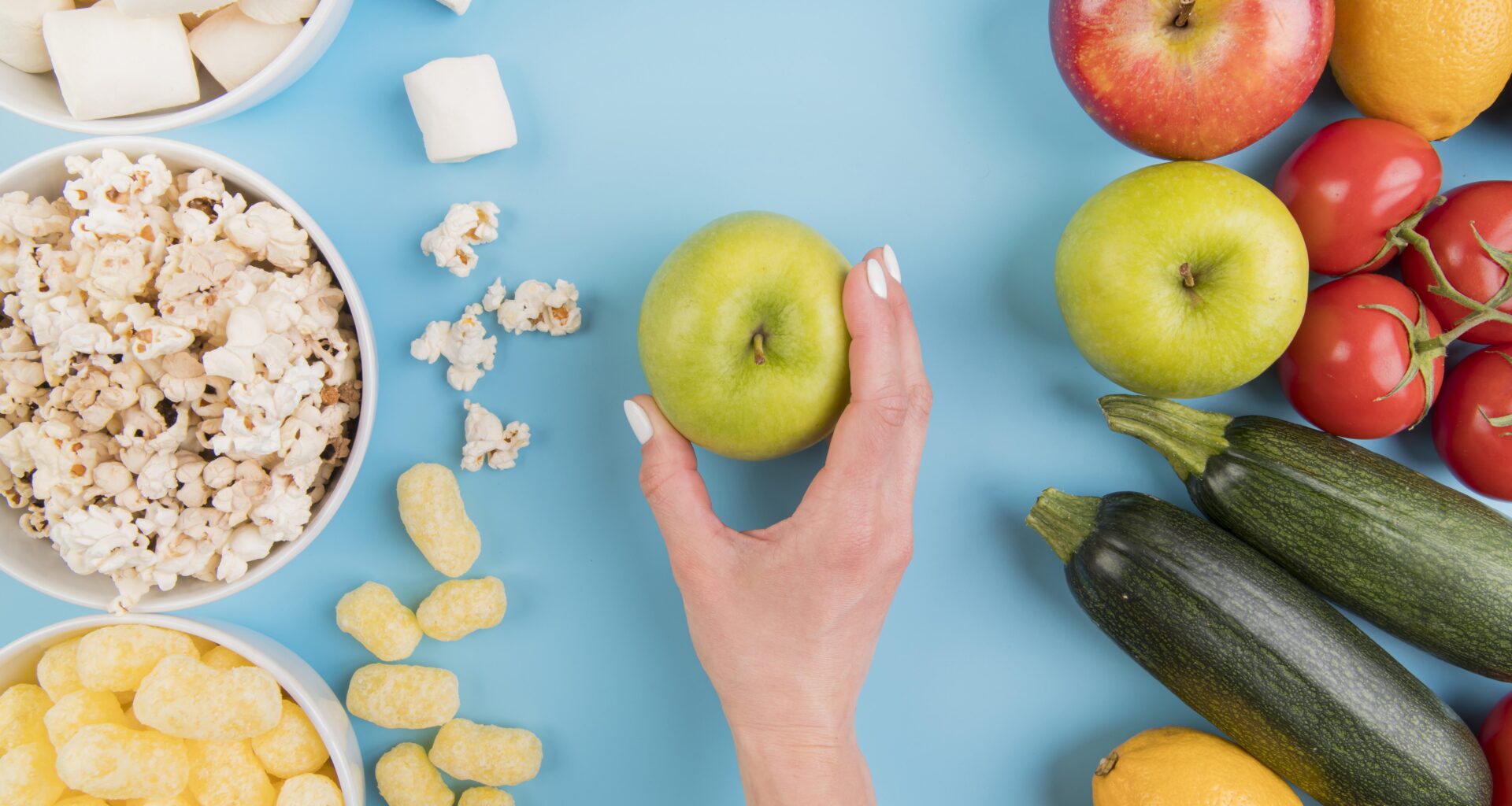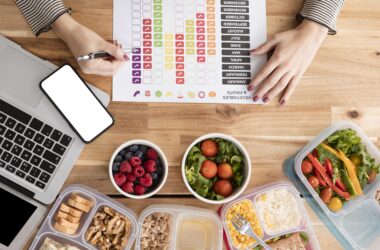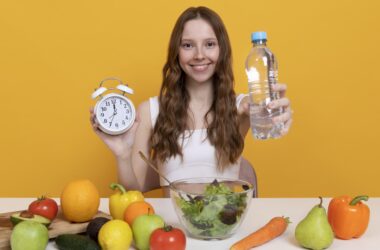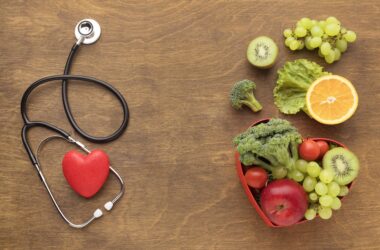Nutrient intake is more than just the food we eat, even though it seems like we’re always looking for new ways to feed our bodies.
Even if you eat a lot of foods that are high in nutrients like vitamins, calcium, and iron that you want to get more of, you might not be getting as much as you think. This is because of how things combine with each other.
In this post, we’ll discuss what nutrient absorption is and how to optimize your nutrient absorption.
Optimizing Nutrient Absorption
Many people believe that the food they consume provides their body with all the nutrients they need. But the body needs a balanced diet and has to eat certain foods in combination with other foods in order to absorb specific nutrients, as some are poorly absorbed when consumed alone. Making the correct mixes of foods is crucial to ensuring that we get the maximum amount of nutrients from them.
Eating a wide range of different foods, including protein, fresh fruits and vegetables, healthy grains, and seeds, is the greatest method to absorb as many nutrients as possible, according to health professionals. Lastly, by monitoring the amounts or percentages. It is best to eat these items simultaneously for optimal absorption.
Read More: Ways to Lose Weight
Food Combinations for Optimal Nutrient Absorption
Here are some beneficial combinations of foods that can help your body absorb nutrients better:
Iron with Vitamin C
Iron deficiency is a major concern for plant-based eaters. The absorption of iron is enhanced when consumed alongside vitamin C-rich foods.
For example, a burrito filled with beans—rich in iron—and sliced bell peppers—rich in vitamin C—is a smart option.
Zinc with Sulphur
Another mineral that many people worry about while trying to eat just plants is zinc. Zinc, which is present in legumes, some seeds, and grains (such as chickpeas), is most effectively absorbed when combined with sulphur.
If you’re already adding sulphur-containing foods like garlic and onions to your chickpea cooking, you’re enhancing zinc absorption even further.
Antioxidants with Fats and Fat-Soluble Vitamins
Vitamin absorption might be challenging for vegans. Tomatoes cooked in lipids, such as olive oil, provide a good source of these nutrients. Lycopene, a phytonutrient, is abundant in tomatoes.
When tomatoes are cooked down, adding extra virgin olive oil improves the absorption and activation of lycopene far more than when the fat is not present.
Read More: Benefits of High Intensity Interval Training
Turmeric with Black Pepper
When combined with black pepper, turmeric’s bioavailability can be increased, which is beneficial because curcumin, which is an anti-inflammatory active component, is found in turmeric.
Leafy Greens with Citrus Fruits
When consumed when combined with leafy greens such as spinach or kale and citrus fruits such as oranges or grapefruits, the vitamin C found in citrus fruits has the potential to enhance the body’s ability to absorb iron.
Yoghourt with Nuts
Consuming nuts together with yoghurt or other foods that are high in calcium can assist your body in absorbing more calcium. This is due to the fact that protein and calcium interact together.
Calcium with Vitamin D
Everyone, not just vegans, needs to take care of their bones, and calcium can help make your bones stronger. Your body will be able to absorb it better if you eat enough zinc and those things that are high in calcium.
When you eat calcium-rich foods like soy milk, almond milk, or plant-based yoghurt, go for a walk outside. The vitamin D in the sun can help your body absorb calcium better.
Adding these food combinations to your diet can help your body absorb nutrients better, improve your general health, and get the most out of the nutrients in the foods you eat.
Read More: Herbs For Immune System
How to Improve Nutrient Absorption?
There are many ways you can improve nutrient absorption from the foods you consume. Here are some that you can start applying in your daily life:
- Chew your food thoroughly: It may be cliche but it actually works. Chewing food thoroughly aids in the breakdown of food particles, making it easier for your body to digest and absorb nutrients.
- Eat mindfully: Engage in the experience of eating by sitting down, savoring the aroma, and enjoying each bite. This mindful approach to eating can enhance digestion and nutrient absorption.
- Limit liquid intake during meals: Drinking excessive amounts of liquid while eating can dilute digestive enzymes, potentially hindering the digestion and absorption process. Aim to consume minimal fluids during meals.
- Consider natural aids: Instead of reaching for antacids, try chewable papaya enzymes, which may help support digestion and nutrient absorption.
- Stay hydrated: Drinking an adequate amount of water throughout the day, preferably before meals, can support digestion, help flush out toxins, and promote regular bowel movements.
- Incorporate gut-friendly foods: Consume cultured foods like kimchi, sauerkraut, yogurt, tempeh, and kefir to promote beneficial gut bacteria. Additionally, include prebiotic-rich foods such as inulin and chicory root fiber to support the growth of probiotics.
- Manage stress effectively: Chronic stress can negatively impact digestion and nutrient absorption. Practice stress management techniques such as mindfulness, meditation, and relaxation exercises to support overall digestive health.
- Identify trigger foods: Pay attention to foods that may cause digestive discomfort or symptoms of intolerance. Eliminating these trigger foods can help improve overall gastrointestinal health and nutrient absorption.
By incorporating these strategies into your lifestyle, you can optimize nutrient absorption, support digestive health, and enhance overall well-being.
Read More: Foods That Suppress Appetite
Conclusion
Achieving optimal nutrition absorption allows your body to fully benefit from a nutritious diet. Drink plenty of water, cut back on stress, get regular exercise, and steer clear of anything that could upset your digestive system.
To enhance gut flora, eat more foods that are high in prebiotics and probiotics and less processed meals. To make sure you’re getting all the nutrients from your food, follow these steps. For optimal health, combine smart eating with optimised absorption.
FAQs
Nutrient absorption can be influenced by various factors including the quality of the food consumed, digestive health, gut microbiota, and specific food combinations that enhance or inhibit absorption.
Factors such as certain medications, digestive disorders, excessive alcohol consumption, chronic stress, and consuming anti-nutrients found in some foods can hinder nutrient absorption.
The body absorbs nutrients through the small intestine, where nutrients are broken down and transported into the bloodstream for distribution to cells and tissues, supporting various physiological functions and overall health.







